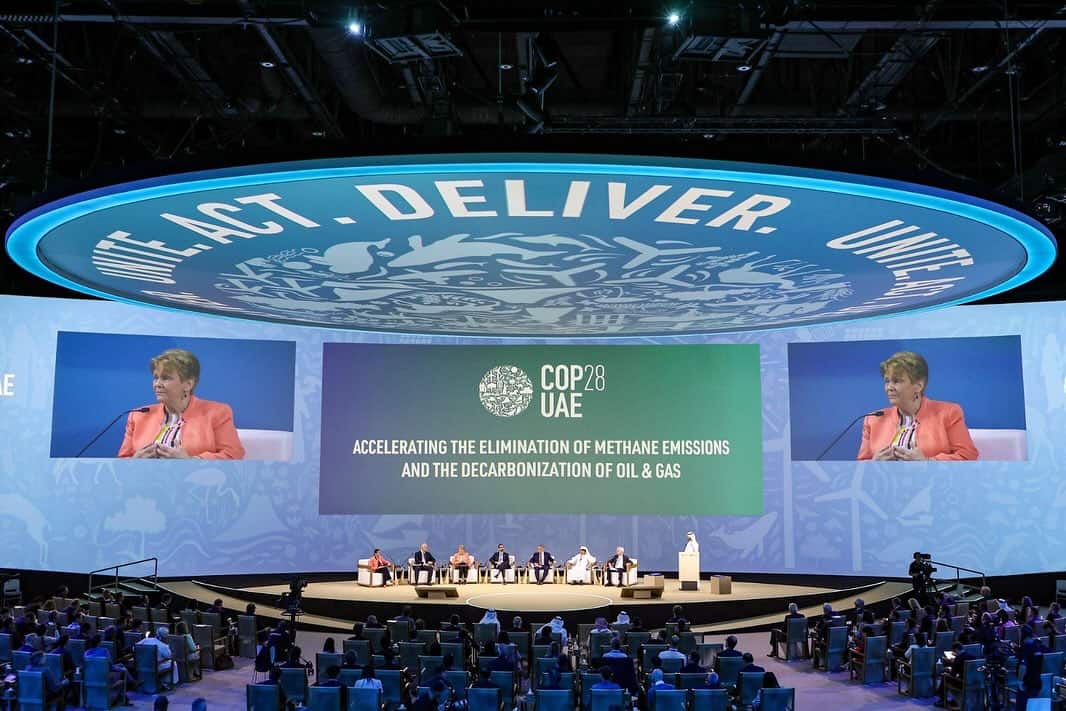On the last day of negotiations at COP28, Karlos Moresi Lee, the Pacific Islands Forum Programme Adviser for Resilient Development Finance, discussed the challenges faced by negotiators from the Alliance of Small Island States (AOSIS) as they push for strong language on the phase-out of fossil fuels.
Lee said AOSIS negotiators stayed up late night engaging in high-level discussions.
The draft text for the Global Stocktake (GST) emerged around after 6pm Monday night, prompting immediate responses from member countries.
“The fossil fuel phase-out language was weakened and diluted in the draft text, providing countries with the option to either phase out or upgrade fossil fuels, with vague timelines,” said Lee.
“Our position is clear: we want a decisive move towards fossil fuel phase-out due to the environmental and climate change impacts faced by our nations,” Lee said in a media briefing in Dubai.
Lee highlighted the side room negotiations, where AOSIS negotiators worked hard to engage with countries holding opposing views. Some success was noted, as even countries like Singapore, initially against the AOSIS position, softened their stance after side discussions.
“There were small wins in terms of changing some countries’ positions or at least not opposing our general view. In these heated negotiations, these small wins are crucial steps towards our ultimate goal of fossil fuel phase-out,” explained Lee.
The focus also extended to language around fossil fuel subsidies and climate finance.
Lee stressed the importance of redirecting funds away from supporting fossil fuel companies and expressed disappointment over the lack of strong language on subsidies phase-out.
Concerns were raised about the potential use of Rule 16, with several agenda items being pushed back.
Lee highlighted the unexpected situation of multiple items being ruled out, which could impact the progress achieved over the two weeks of negotiations.
When asked about the expected finish time, Lee said that it depended on countries’ willingness to push for outcomes.
AOSIS is pushing for fossil fuel phase-out, and discussions are ongoing among ministers to solidify their position.
“The risk is not getting strong language on fossil fuel phase-out and allowing developed countries to continue their fossil fuel consumption. We don’t want to sign a death certificate for our countries and people,” Lee emphasised.
The absence of some Pacific leaders was acknowledged, but Lee reassured that ministers, with the mandate from their countries, are actively representing the region’s interests.
As the anticipation for revised language builds, Lee stressed the need for sufficient time to review the text before the high-level plenary.
The potential for a walkout was discussed as a negotiation tactic, with Lee said that it could provide an opportunity to renegotiate if there’s no major movement in the language.
The mood among developing countries was described as frustrated, with questions arising about the effectiveness of the COP process.
Lee expressed concerns about the lack of commitment from developed countries and the feeling that efforts are being wasted. “We are not giving up; our resolve is strong. We came here for a reason, and we will push for what we came for,” said Lee.
